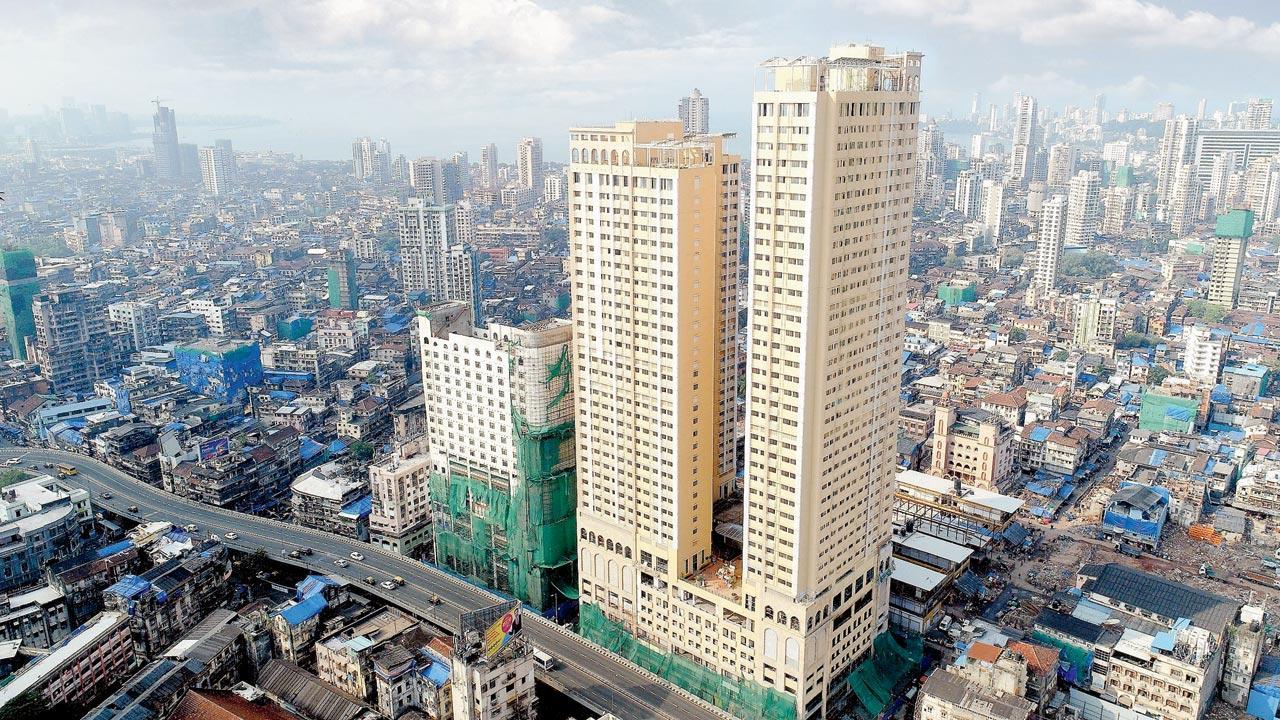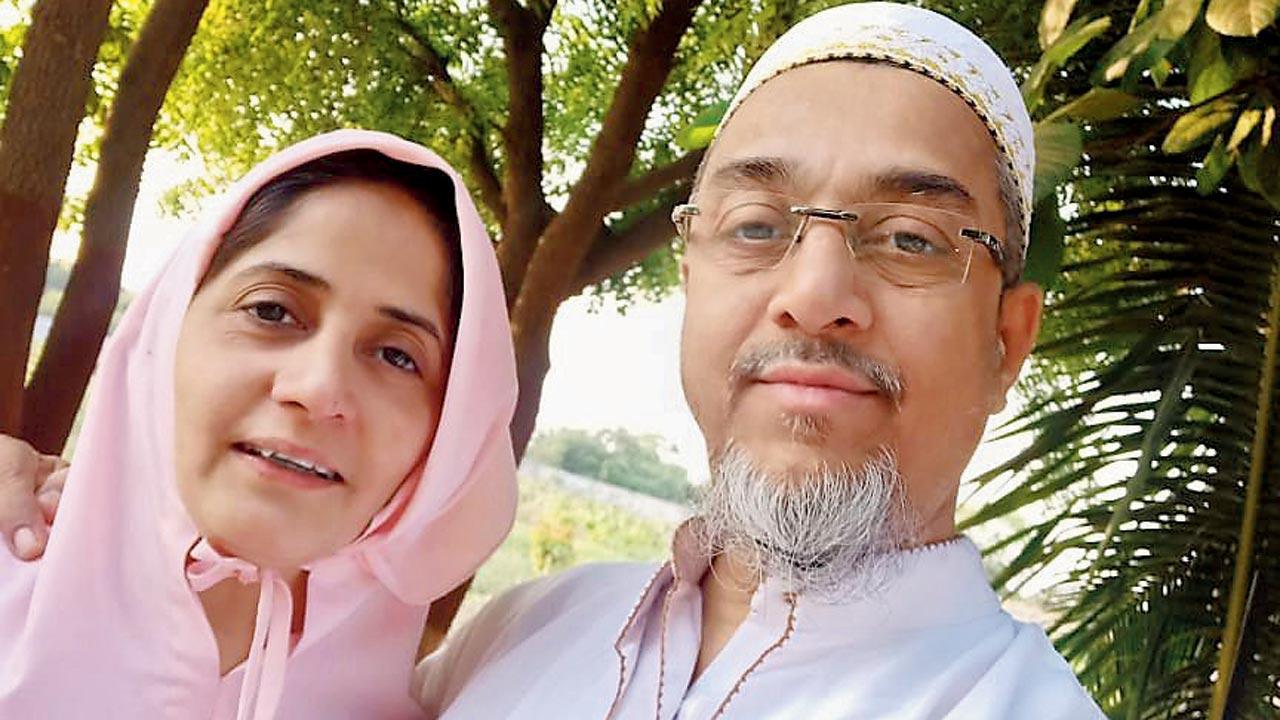BMC’s clearance to start phase 2 of the cluster redevelopment project renews tenants’ excitement to soon own their homes in the Maximum City

As part of phase 1 of Bhendi Bazaar cluster redevelopment project, two towers were built
The Bhendi Bazaar cluster redevelopment project got a major boost with the civic body issuing commencement certificate (CC) to start phase 2 of the construction work in a phased manner. The project—the country’s largest cluster redevelopment work—is anticipated to be completed and rehabilitation done by 2025.
The project is funded and undertaken by Saifee Burhani Upliftment Trust (SBUT), a not-for-profit public charitable trust, which was established in 2009 with the purpose of transforming the crumbling Bhendi Bazaar area into a residential and commercial space with modern infrastructure and civic amenities, as per the National Building Code and Development Control Plan Rules, 2034.
The project
Spread over 16.5 acres, the cluster development directly impacts 3,200 families and 1,250 commercial outlets, accommodating more than 20,000 people. As part of the project, 250 decrepit buildings will be replaced by 11 new towers and requisite urban amenities. This project focuses on rehabilitating the tenants currently living and working in dangerous buildings to safe and secure spaces by creating dignified living spaces and retaining a strong sense of community living, said the SBUT spokesperson.
 Mariya and her husband Shabbir Jasdanwala were among the first ones to be shifted to the transit tower but are yet to get their homes
Mariya and her husband Shabbir Jasdanwala were among the first ones to be shifted to the transit tower but are yet to get their homes
“Around 72 old and dilapidated buildings have been demolished in Sector 4 to make way for two new towers of 51 and 52 storeys each. Overall, 1,393 residential and 321 commercial shops will be housed in two towers. Construction work on Sector 6 is already underway, and now with the CC for Sector 4, we plan to complete the entire rehabilitation portion by 2025,” said the spokesperson.
“The entire project is divided into two phases which is further subdivided into 9 sectors. Phase 1 had two towers which are already constructed and occupied, and phase 2 will have four towers which are under construction. The first phase was completed in 2020, rehousing 610 families and 128 commercial outlets in two towers,” he added.
When asked to elaborate on the project status and cost, the official said, “Phase 2 comprises four towers which will include commercial, residential and religious structures. The total construction cost for the entire Bhendi Bazaar cluster redevelopment project is estimated at a whopping R4,000 crore. SBUT is funding the entire project and they plan to recover it from the incentive FSI, as per DPCR 2034.”
Bhendi Bazaar, over the years, became one of the most underdeveloped and neglected areas in Mumbai. The 150-year-old ageing infrastructure, dilapidated buildings, lack of open spaces and outdated sanitation facilities had caused a decline in the standard of living of the occupants. Over 80 per cent of the buildings had become old, worn-out and declared unfit for living.
The 52nd Dawoodi Bohra community leader, the late His Holiness Syedna Mohammed Burhanuddin, had first mooted the idea for the cluster redevelopment of the entire Bhendi Bazaar.
From tenants to owners
Yusuf Jivaji, 53, and his family used to live in a 350 sq ft room on the second floor of Khatija Manzil and were entitled to one-hour water supply, at a monthly rent of R250. The family also had to share the common toilets with 18 other families residing in the said property till 2018. However, after SBUT took over the building for redevelopment, Yusuf and his family were shifted to a transit tower constructed in Mazgaon.
Speaking to mid-day, Yusuf, who works as a freelance accountant, said, “I have been living with my mother Banu, aged 86, wife Munira, 48, and two children in the transit building at Mazgaon since 2018 and our lives have become more comfortable and meaningful. Here, we get water round the clock as opposed to the one-hour limit. SBUT also provided cushions, curtains and other fixtures in each flat. Over 4,000 tenants are benefitting from the cluster redevelopment project, and most importantly, we will have roofs of our own. Moreover, the beneficiaries of the project are people from all walks of life, irrespective of their caste, creed, religion.”
When asked about the status of his upcoming house, Yusuf said, “The construction work is underway and it will take a couple of years to complete. Then the flats, of at least 375 sq ft carpet area, will be allotted.”
An emotional Yusuf said, “Even in my wildest dream, I never dreamt of owning a property in the city of Mumbai. Now we get sufficient natural light and breeze, unlike before when we had to keep fans and lights on even during the day.”
Mariya Jasdanwala, 52, another tenant, said, “I came to Galabai building after my marriage to Shabbir 14 years ago, and the biggest problem I faced there was that my mezzanine-floor room did not have a window and we had to use the common toilet outside. When the cluster redevelopment work was announced, the tenants of Galabai building were the first to be shifted in 2010-2011. And I was so thrilled to see a window in the bedroom as well as the other arrangements.” When asked about the wait of nearly a decade for the construction work of their sector 6, Mariya said, “We have no problem in waiting. The community people will ensure that the decision becomes a reality. It is only because of His Holiness’s blessings that we will become owners of our own property from mere tenants.”
 Subscribe today by clicking the link and stay updated with the latest news!" Click here!
Subscribe today by clicking the link and stay updated with the latest news!" Click here!










